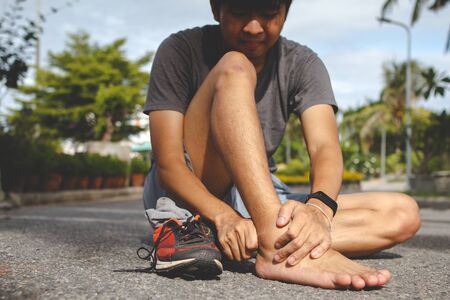Understanding Addiction in India
In India, addiction is a complex issue deeply intertwined with social, familial, and cultural dynamics. While substance abuse affects millions across the country, acknowledging and addressing addiction often faces significant hurdles due to stigma and traditional beliefs. Many Indian families tend to perceive addiction as a moral failing rather than a medical condition, leading to shame and reluctance to seek help. Community perceptions and societal pressures further compound this challenge, as individuals battling addiction may fear isolation or judgment from their peers and extended family networks. Moreover, cultural expectations around duty, honour, and reputation make open discussions about addiction rare, especially in rural areas where support systems might be limited. These unique factors highlight the urgent need for accessible solutions tailored to Indias diverse population—solutions that not only offer medical support but also address the deep-rooted stigma surrounding rehabilitation.
Current Landscape of Addiction Treatment
Addiction rehabilitation in India has traditionally relied on a mix of government-run de-addiction centres, private rehabilitation facilities, and community-based programs. These conventional rehab options are spread unevenly across the country, creating significant differences in accessibility between urban and rural areas.
Overview of Conventional Rehab Options
| Type of Facility | Main Features | Availability (Urban) | Availability (Rural) |
|---|---|---|---|
| Government De-addiction Centres | Affordable, regulated by Ministry of Social Justice & Empowerment, offer counselling & medical detox | Moderate to High | Low |
| Private Rehab Facilities | Premium services, specialised therapies, higher cost, often in metros or tier-1 cities | High | Very Low |
| NGO/Community-Based Programs | Culturally sensitive support, group therapy, peer networks, free or low-cost | Moderate | Moderate |
Accessibility Challenges: Urban vs Rural India
In metros like Mumbai, Delhi, and Bengaluru, individuals struggling with addiction have better access to structured rehab services. However, the high costs and social stigma still present barriers. In contrast, rural populations face acute shortages of trained professionals and facilities. Travelling long distances for treatment is often not practical due to financial constraints and lack of transport infrastructure.
Key Gaps in Support Systems
- Lack of Awareness: Many families are unaware that addiction is a treatable condition.
- Cultural Stigma: Social judgement deters people from seeking help.
- Poor Integration: Coordination between healthcare providers, mental health professionals, and social workers remains weak.
- Sustainability: Aftercare and relapse prevention support is minimal or absent.
- Language Barriers: Most resources are available only in English or Hindi, excluding regional language speakers.
These gaps highlight the urgent need for accessible tech solutions and mobile apps that can bridge the divide—offering privacy, multilingual support, and remote intervention options for both urban and rural communities across India.
![]()
3. Role of Technology in Accessible Rehabilitation
In India, technology is acting as a true game-changer in the field of addiction rehabilitation. With the rapid increase in smartphone usage across urban and rural areas alike, digital tools and tech-powered platforms are bridging the gap between traditional support systems and modern-day requirements. Today, mobile apps, helpline chatbots, and online therapy sessions are making rehabilitation resources more accessible to people from all walks of life—be it in bustling metros like Mumbai or remote villages in Tamil Nadu. These digital solutions allow individuals to seek help confidentially, overcoming social stigma and geographical barriers often associated with addiction. From AI-driven mental health assessment tools that adapt to local languages and dialects, to WhatsApp-based peer support groups that foster real-time community engagement, technology is empowering users to take proactive steps toward recovery. Moreover, many Indian startups are collaborating with NGOs and government agencies to ensure culturally sensitive content and region-specific features are available within these apps, keeping inclusivity at the forefront. By leveraging affordable smartphones and widespread internet penetration, India’s tech revolution is not just making rehab services more reachable but also more personalised and effective for millions who need support.
4. Popular Mobile Apps for Addiction Recovery in India
The surge in smartphone use across India has opened doors to innovative mobile apps that specifically address addiction recovery and mental health support. These apps are uniquely tailored to Indian languages, local cultural contexts, and economic realities, ensuring they are both accessible and effective for people from diverse backgrounds.
Leading De-Addiction & Mental Health Apps in India
| App Name | Key Features | Languages Supported | Affordability |
|---|---|---|---|
| Sober Grid India | Peer support community, daily check-ins, mood tracking, 24/7 chat rooms | English, Hindi, Marathi, Tamil | Free with optional premium features |
| MitraCare | Personalized recovery plans, access to licensed therapists, regional helplines | Hindi, English, Bengali | Low-cost subscription; free for select NGOs |
| Kiran by NIMHANS | PAN-India mental health helpline app, counseling services, culturally sensitive content | 13 Indian languages including Kannada, Telugu, Malayalam | Free to use |
| QuitSure India | Guided de-addiction modules (alcohol/tobacco), progress tracker, habit journal | English, Hindi | Freemium model; affordable paid plans available |
| MindPeers Wellness App | Counseling sessions, AI-powered emotional wellness coach, community forums respectful of Indian values | English, Hindi, Urdu (expanding) | Affordable subscriptions; some free resources |
Cultural Sensitivity & User Experience Matters Most
Most leading Indian apps prioritise privacy and stigma-free engagement—crucial in communities where discussing addiction is still taboo. Features like anonymous peer chat, region-specific helplines, and language localisation break barriers for users who may otherwise hesitate to seek help. Many apps also include family involvement tools recognising the central role of family in Indian society.
Tackling Affordability and Accessibility Gaps
Given the economic diversity in India, many de-addiction apps offer tiered pricing or free essential services supported by NGOs or government partnerships. Offline functionality is also a priority so users in low-connectivity areas can access core features without interruption.
The Road Ahead: Empowering Recovery Through Tech
The rise of culturally relevant and affordable digital solutions is making addiction recovery support more accessible than ever before in India. As these mobile apps continue to evolve with input from Indian users and experts, they have the potential to transform lives at scale—empowering individuals to reclaim their wellbeing with dignity and hope.
5. Localised Features and Culturally Relevant Content
When it comes to mobile apps and digital platforms for addiction rehab in India, localisation is not just a bonus—it’s a necessity. India’s rich diversity of languages and cultural practices makes vernacular language support essential for accessible tech solutions. Most Indians are comfortable communicating in their mother tongue, whether it is Hindi, Tamil, Bengali, Telugu, or Marathi. By offering app interfaces and content in regional languages, digital rehab platforms can break down barriers and ensure that people from all backgrounds feel seen and understood.
Culturally Aware Content for Indian Users
Beyond language, culturally aware content plays a key role in building trust with users. For example, many Indian families view addiction as a social stigma rather than a medical condition. Digital rehab apps that integrate family-oriented messaging, respect for privacy, and positive stories of local recovery can resonate more deeply with Indian users. Using familiar terms and references—like “Nasha Mukti” (de-addiction) or mentioning well-known festivals—helps make the recovery journey relatable.
Traditional Wellness Practices Integrated into Rehab Solutions
India’s heritage of holistic healing provides unique opportunities for digital rehab solutions. Many successful mobile apps now incorporate elements such as yoga, meditation (Dhyan), Pranayama (breathing exercises), and even Ayurveda-based lifestyle advice. These traditional Indian wellness practices are already trusted by millions across the country and align with the holistic approach required for lasting recovery. By blending technology with these time-tested methods, rehab platforms offer support that feels both innovative and authentically Indian.
The Path Forward: Inclusive Tech for All Indians
Ultimately, the most effective addiction rehab apps in India will be those that embrace local languages, respect cultural sensitivities, and celebrate indigenous wellness traditions. When technology speaks the language of its users—literally and figuratively—it empowers individuals on their path to recovery and fosters a sense of community across India’s vast landscape.
6. Challenges, Privacy Concerns, and Future Roadmap
Addressing the Current Barriers in Tech-Driven Addiction Rehab
Despite the rapid adoption of mobile apps and accessible technology in addiction rehabilitation across India, several persistent challenges remain. One of the most pressing issues is data security. As individuals share sensitive personal information through digital platforms, ensuring robust encryption and compliance with Indian privacy laws like the IT Act is essential. Many users worry about their data being misused or shared without consent, especially given the stigma that surrounds addiction in many Indian communities.
Tackling Stigma and Digital Literacy Gaps
The social stigma attached to addiction continues to discourage many people from seeking help via online platforms. In smaller towns and rural areas, this stigma can be even more pronounced, making confidentiality and discreet support features in apps crucial. Additionally, digital literacy remains a barrier—many potential users are not comfortable navigating mobile apps or lack access to smartphones and stable internet connections. Initiatives that offer vernacular language support, simple user interfaces, and awareness campaigns can bridge these gaps significantly.
Emerging Trends: AI, Personalisation, and Localisation
Looking ahead, several promising trends are emerging in the field of tech-driven addiction rehab in India. Artificial intelligence-powered chatbots are being designed to provide instant support and tailored guidance 24×7, while machine learning algorithms can help personalise recovery plans based on user behaviour and progress. Localised content—offered in Hindi, Tamil, Telugu, Bengali, and other regional languages—is set to make rehab resources more inclusive than ever before.
Opportunities for Collaboration and Growth
Collaboration between government bodies, NGOs, healthcare professionals, and tech startups will be vital to scaling up these solutions nationwide. Programmes like Digital India can be leveraged to improve infrastructure and promote health-tech innovations targeting addiction recovery. Further investment in training counsellors on digital tools and raising public awareness about the benefits of tech-enabled rehab will also play a key role.
The Road Ahead: Making Addiction Recovery Truly Accessible
To maximise impact, future roadmaps must focus on strengthening privacy frameworks, reducing stigma through education, enhancing digital literacy, and continuously innovating app features based on user feedback. By prioritising inclusivity and trustworthiness, accessible tech can become a powerful ally in Indias fight against addiction—helping millions begin their journey towards recovery with dignity and hope.

